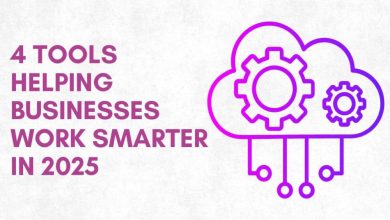How Project Management Accounting Software Bridge Execution & Financial Precision

“We’re under budget, right?”
“Depends… which spreadsheet are you looking at?”
“Did we factor in the third-party consultants yet?”
“Nope, still waiting on finance to send over the numbers.”
If that sounds familiar, you’re not alone.
For project-based businesses, this kind of back-and-forth isn’t just frustrating—it’s risky. When project managers, finance teams, and leadership operate on different versions of the truth, decision-making slows down, margins slip, and accountability becomes fuzzy.
This is exactly why modern organizations are turning to project management accounting software—not as another tool in the stack, but as the backbone for aligning execution with financial performance.
Let’s unpack what makes accounting software project management platforms so effective—and why they’re essential for maintaining control in complex, multi-project environments.
Why Traditional Systems Fall Short
Most businesses rely on standalone project management tools and generic accounting software. While these systems are robust individually, they rarely talk to each other in real-time. Project managers lack visibility into financial data, while accountants struggle to attribute costs and revenues accurately to specific projects.
The result? Misaligned forecasts, missed deadlines, cost overruns, and lost opportunities.
An integrated project management and accounting software eliminates this disconnect. It brings both functions under one umbrella, ensuring everyone is on the same page—whether it’s the CFO monitoring budgets or a project lead tracking progress.
Key Features That Matter
A capable project cost accounting software does more than automate invoices. It helps answer crucial questions:
- Are we on track with the budget?
- What’s the actual vs. planned expenditure per task or resource?
- How are indirect costs being allocated across projects?
- Which projects are most profitable?
Some core features to look for include:
- Time & Expense Tracking: Associates employee hours and expenses directly with projects to give a real-time view of financial health.
- Cost Codes & Budgeting: Lets you assign cost codes to activities and create detailed budgets for accurate cost control.
- Revenue Recognition: Automates recognition based on milestones or delivery, ensuring compliance with accounting standards.
- Forecasting & Variance Analysis: Compares forecasted numbers with actuals to identify leaks before they turn into losses.
Solutions like Kytes PSA + PPM ensure these features are not just available but seamlessly integrated, allowing teams to focus on delivery without compromising financial oversight.
Who Needs Project Management Accounting Software?
This kind of software is not limited to large enterprises. Whether you’re a consulting firm, an IT services provider, or a product-based business, if your success depends on managing multiple deliverables and margins—project cost accounting software is a must.
Particularly for businesses handling client projects, subcontracts, and international teams, the ability to standardize financial processes and gain clarity into profit margins can be a game-changer.
From Control to Confidence
When teams work in silos, financial decisions become reactive. But when operations and finance converge through project management and accounting software, businesses shift from reactive control to proactive confidence.
Imagine knowing in advance that a project is likely to exceed budget, and having the time to adjust scope or reallocate resources. Or forecasting revenue more accurately based on project progress, not just invoices. This kind of agility is not just helpful—it’s essential.
Tools like Kytes go one step further by offering customizable views for finance heads, delivery leads, and CXOs, enabling informed decisions at every level of the organization.
Conclusion
In a world where project success depends on both operational efficiency and financial discipline, relying on disconnected systems is no longer viable. Project management accounting software empowers organizations to gain visibility, ensure accountability, and drive profitability—across every project.
Kytes offers a unified PSA platform that seamlessly blends project management with financial controls. If you’re ready to move beyond spreadsheets and silos, schedule a demo to explore how Kytes can help your business deliver with precision.

Source: How Project Management Accounting Software Bridge Execution & Financial Precision




